It’s National Barbecue Month: A Primer on This Satisfying Food Delivery Staple
Posted by Sara on Monday, May 5th, 2014 with 4 Comments
Long days, rising temperatures, sunny skies… it’s no wonder that May has been designated as National Barbecue Month. And barbecue isn’t just for backyards and picnics, either: it makes a perfect food delivery option for team-building office meals or work celebrations. A big slab of meat, a few delicious sides, and a pitcher of sweet iced tea is an instant recipe for laid-back festivities!
Before you order up your next barbecue lunch, though, take a minute and determine what speaks to your soul (and your coworkers’). Is it Carolina-style chopped pork? Classic Texas brisket? While barbecue may seem straightforward, there are some very important regional nuances that go into each dish. Here’s our Barbecue 101 breakdown so you can make sure your next food delivery order doesn’t disappoint the diehard barbecue fans in your office!
It’s hard to start a conversation about barbecue without beginning with the Carolinas. North and South alike are home to some of the country’s most devoted barbecue enthusiasts, and fierce defenders of their respective regional styles. In both states, pork is king, but beyond that different parts of each state have their own specific barbecue traditions.
In North Carolina, the eastern side of the state favors whole hog barbecues, meat served finely chopped, and sauce that is very simple: vinegar and pepper. In the western region, wood-smoked pork shoulder is the preferred cut of meat, and sometimes served with a tangy, sweet tomato-based sauce that has cabbage mixed in, known as “barbecue slaw”. Another favorite North Carolina side? Hush puppies!
South Carolina is home to that unmistakeable sweet yet sour mustard-based barbecue sauce, especially in the central part of the state. It’s perfectly paired with the mouth-meltingly luscious wood-smoked pork (traditionally the whole hog) that South Carolina is famous for. There are other, smaller regional varieties within the state, but this is certainly the most representative style… and cole slaw is a favorite side here, as well.
For most meat-lovers, Memphis barbecue means ribs, but there’s an important question to ask: wet or dry? Dry-rub pork ribs are perhaps more prototypically Memphis, with spice-crusted ribs served without sauce. When ribs are drenched in sauce after cooking, they’re called “wet ribs”, and the sauce is typically a thinner, tomato-and-vinegar sauce. While ribs may reign supreme in Memphis, pork of all kinds is done well in barbecue joints across the city. In Tennessee, the cole slaw tends to be spiked with mustard, and baked beans studded with barbecue trimmings are delicious.
Kansas City, right in the middle of the country, is understandably famous for its variety: it’s benefitted from proximity to styles of all kinds from its neighbors! Kansas City ribs are a standard, but so is smoked chicken, pulled pork, and beef brisket. Everything is usually slathered in Kansas City-style barbecue sauce, which has generally become the standard for the rest of the country: a thick, tomato-based sauce sweetened with molasses. Kansas City is also known for its plethora of side dishes, including baked beans, French fries, and cheesy corn casserole.
Last, but very far from least, is the Lone Star state. When it comes to Texas barbecue, beef is the meat of choice, and brisket is the favorite cut — and a challenge to the best barbecue pit masters. Originally a tougher cut of meat, brisket is slow-cooked for hours until it becomes beautifully tender, with a telltale pink “smoke ring” just inside each slice. It’s not all about brisket, though; Texas excels in sausage and pork ribs, too. When it comes to sauce, some Texans eschew it altogether because they firmly believe the meat should stand alone. When sauce is served – usually on the side – it tends to be more tomato-based, and both hotter and thinner than the sweeter Kansas City-style sauces. Sliced white bread and pickles are common Texas sides, along with their famous cowboy-style baked beans, which are mixed with the crispy burnt ends from the brisket.
Texas beef, Carolina pork, Memphis ribs… it’s hard to go wrong when it comes to barbecue. You might bring out the regional pride in your colleagues, or ignite a debate over vinegar versus tomato-based sauces. The only certainty is that when you order from the food delivery experts at Waiter.com, it’ll be the easiest route to a satisfying, finger-licking feast!
When it comes to feeding employees and coworkers, make your company's food program really count! If your workplace dining plan needs to take it up a notch — or if you don't have one at all — Waiter.com is here to help. From Virtual Cafeteria Service to diverse menus to local takeout & delivery, Waiter.com offers customizable dining solutions for every business and budget. Contact us today to get started!
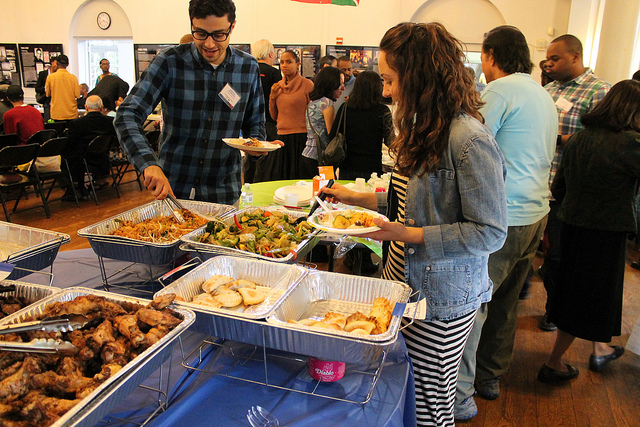
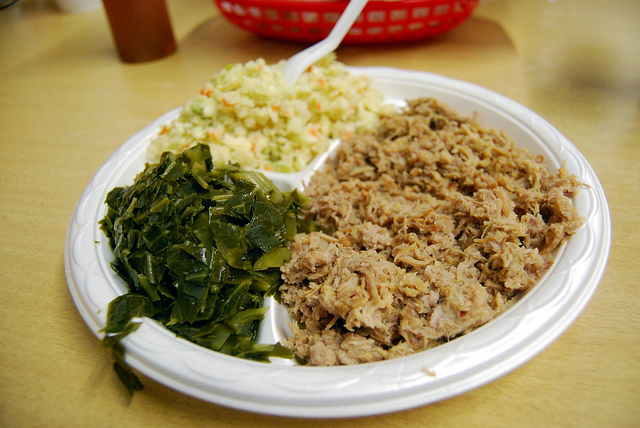
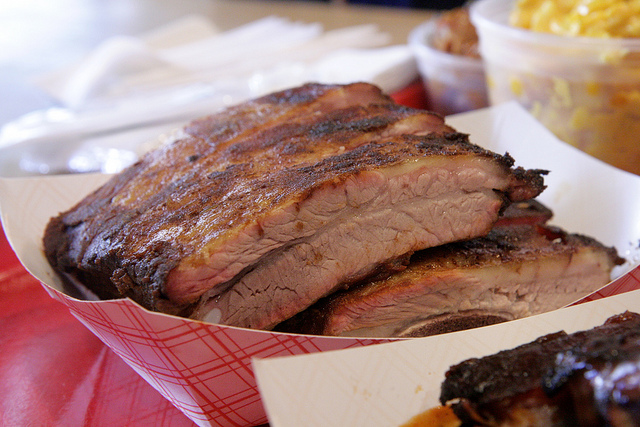
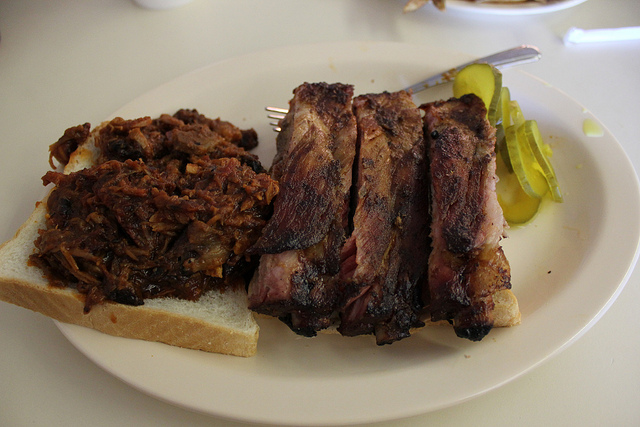
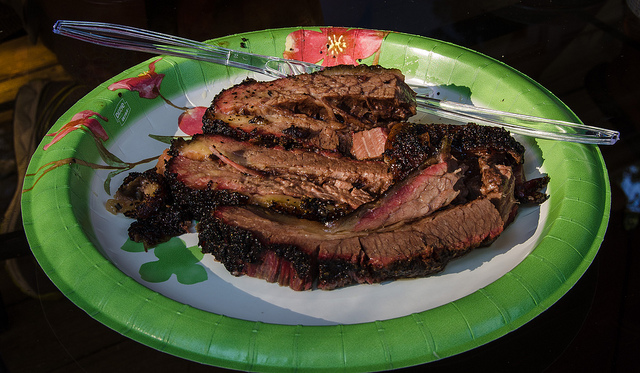

I can recall one hot summer day grilling for what seemed like hours for our staff. It was insane. I never considered having it catered, this would have clearly been the way to go so that I could have been inside focusing on the whole point of the festivities which was increased productivity. I don’t think it really matters what the main dish is, it’s the fact that the employees are happy to know that they are being thought of.
Catering is definitely the most convenient way to go! While DIY barbecue can be fun, unless you don’t have any other work to do that day, ordering takeout is certainly an attractive option.
This is a wonderful idea! Food always brings people together, but barbecue? Now thats a way to form some real relationships and get conversations starred! Barbecuing reminds us of family gatherings, nice weather a and good times. These are things not usually associated with the work place but I’m sure really boosts moral. I agree with the post above, whats being served probably doesn’t matter much, the atmosphere will be enough to satisfy people.
Very pertinent post since barbeque season is approaching. I always knew there were different “genres” of bbq but never really understood the nuances between Carolina and Texas and Memphis and KC bbq. The differences in sauce types (dry rub versus vinegar), cuts of meat (pork versus brisket) and cooking style (slow smoked versus bbq pit) is definitely good to know the next time I look for a bbq joint to eat at. As much as I would like to make my own Carolina or brisket bbq, I don’t think I have the patience to smoke something 18 hours or bbq to cook an entire pig.